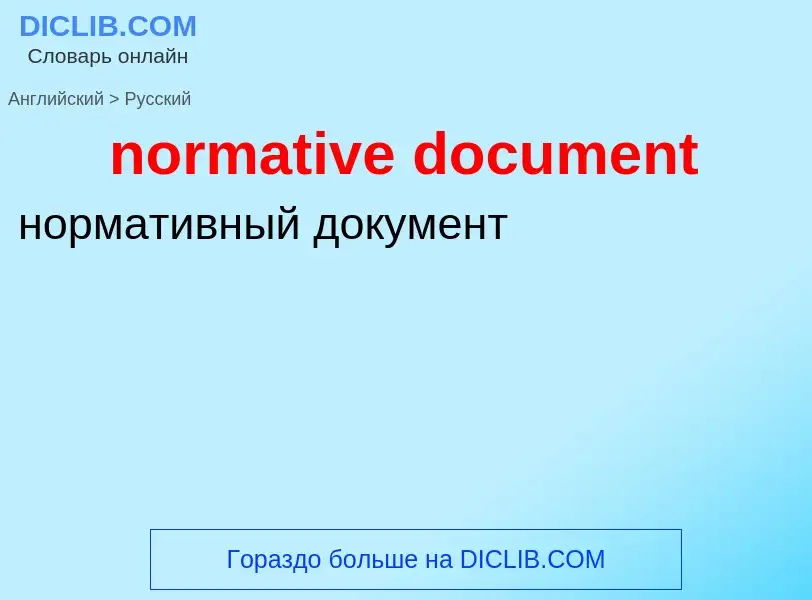Vertaling en analyse van woorden door kunstmatige intelligentie ChatGPT
Op deze pagina kunt u een gedetailleerde analyse krijgen van een woord of zin, geproduceerd met behulp van de beste kunstmatige intelligentietechnologie tot nu toe:
- hoe het woord wordt gebruikt
- gebruiksfrequentie
- het wordt vaker gebruikt in mondelinge of schriftelijke toespraken
- opties voor woordvertaling
- Gebruiksvoorbeelden (meerdere zinnen met vertaling)
- etymologie
normative document - vertaling naar russisch
общая лексика
документная база данных
упорядоченная совокупность взаимосвязанных документов
Смотрите также
Wikipedia
Normative generally means relating to an evaluative standard. Normativity is the phenomenon in human societies of designating some actions or outcomes as good, desirable, or permissible, and others as bad, undesirable, or impermissible. A norm in this sense means a standard for evaluating or making judgments about behavior or outcomes. "Normative" is sometimes also used, somewhat confusingly, to mean relating to a descriptive standard: doing what is normally done or what most others are expected to do in practice. In this sense a norm is not evaluative, a basis for judging behavior or outcomes; it is simply a fact or observation about behavior or outcomes, without judgment. Many researchers in science, law, and philosophy try to restrict the use of the term "normative" to the evaluative sense and refer to the description of behavior and outcomes as positive, descriptive, predictive, or empirical.
Normative has specialised meanings in different academic disciplines such as philosophy, social sciences, and law. In most contexts, normative means 'relating to an evaluation or value judgment.' Normative propositions tend to evaluate some object or some course of action. Normative content differs from descriptive content.
Though philosophers disagree about how normativity should be understood, it has become increasingly common to understand normative claims as claims about reasons. As Derek Parfit explains:
We can have reasons to believe something, to do something, to have some desire or aim, and to have many other attitudes and emotions, such as fear, regret, and hope. Reasons are given by facts, such as the fact that someone's finger-prints are on some gun, or that calling an ambulance would save someone's life. It is hard to explain the concept of a reason, or what the phrase 'a reason' means. Facts give us reasons, we might say, when they count in favour of our having some attitude, or our acting in some way. But 'counts in favour of' means roughly 'gives a reason for'. The concept of a reason is best explained by example. One example is the thought that we always have a reason to want to avoid being in agony.

